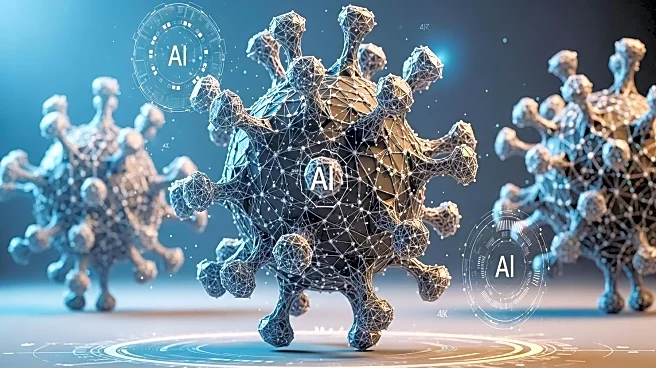What is the story about?
What's Happening?
Researchers from Stanford University and the Arc Institute have successfully created viruses with AI-designed DNA capable of targeting and killing specific bacteria. This groundbreaking work, published in a study awaiting peer review, demonstrates the potential of large language models in bioengineering. The AI model, named Evo, was trained on millions of bacteriophage genomes and used to design 302 virus genomes. Out of these, 16 were able to infect and kill E. coli strains, outperforming natural viruses. The study highlights the ability of AI to generate coherent genome-scale sequences, marking a significant advancement in synthetic biology.
Why It's Important?
The successful creation of AI-designed viruses represents a major leap in bioengineering, with potential applications in therapeutics. However, it also raises ethical concerns about the misuse of AI in creating bioweapons or uncontrollable viruses. The ability to design viruses that outperform natural ones could revolutionize treatments for bacterial infections, offering new solutions where traditional antibiotics fail. Yet, the risks associated with viral enhancement research necessitate caution, as warned by experts in the field. The development underscores the dual-edged nature of AI advancements in biotechnology.
What's Next?
The next steps involve further experimental advances to potentially design entire living organisms using AI. Researchers are urged to exercise caution in viral enhancement research to prevent unintended consequences. The study's findings may prompt discussions among policymakers and bioethicists regarding regulations and safeguards in synthetic biology. Continued research and peer review will be crucial in validating the study's results and exploring therapeutic applications.
Beyond the Headlines
The ability of AI to design distinct genomes that could be classified as new species suggests a transformative impact on synthetic biology. This development may lead to ethical debates about the creation of synthetic life forms and their implications for humanity. The research could also influence future studies on AI's role in genetic engineering and its potential to address global health challenges.














